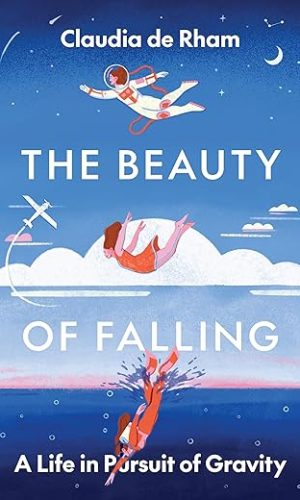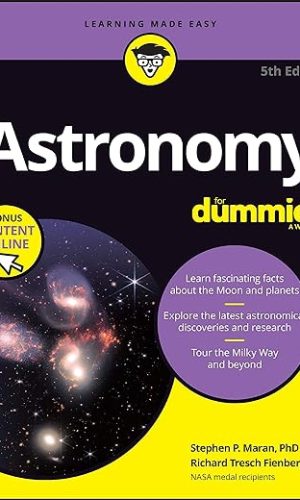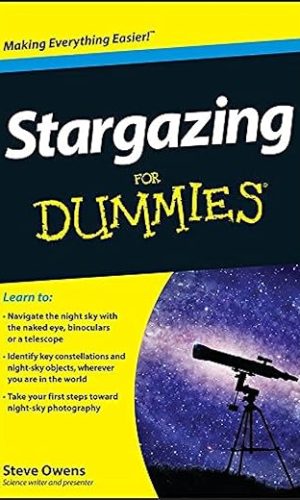White Holes: Inside the Horizon
£10.11£10.99 (-8%)
A mesmerizing trip to the strange new world of white holes, from Carlo Rovelli, the bestselling author of Seven Brief Lessons on Physics
Let us journey into the heart of a black hole. Let us slip beyond its boundary, the horizon, and tumble – on and on – down this crack in the universe. As we plunge, we’ll see geometry fold, we’ll feel the equations draw tight around us. Eventually, we’ll pass it: the remains of a star, deep and dense and falling further far. And then – the bottom. Where time and space end, and the white hole is born . . .
With lightness and magic, here Carlo Rovelli traces the ongoing adventure of his own cutting-edge research, of the uncertainty and joy of going where we’ve not yet been. Guiding us to the edge of theory and experiment, he invites us to go beyond, to experience the fever and the disquiet of science. Here is the extraordinary life of a white hole.
Read more
Additional information
| Publisher | Penguin (6 Jun. 2024) |
|---|---|
| Language | English |
| Paperback | 160 pages |
| ISBN-10 | 1802062149 |
| ISBN-13 | 978-1802062144 |
| Dimensions | 12.9 x 1.5 x 19.8 cm |









by Brian Clegg
One of the comments on the cover of this book is from fantasy author Alan Garner, who calls Carlo Rovelli ‘the poet of physics’. White Holes is probably the most appropriate of Rovelli’s books for this accolade, which also makes it one of the most frustrating. There is some really interesting (if totally speculative) cosmology/astrophysics here in the suggestion that as black holes come to their end they (quantum) tunnel into tiny white holes – but there is an awful lot of poetic waffle surrounding it.
Is this really science? Bearing in mind it’s highly unlikely there will ever be good, real world evidence to support the theory, I’d suggest it is ascientific (to use Sabine Hossenfelder’s term). Not unscientific, but not supported by evidence. Another way of looking at it is hard science fiction – it’s based on good current science, but as Rovelli says himself ‘I do not know if it is correct. I do not even know if white holes exist.’
If we are to use Sagan’s epithet about extraordinary claims needing extraordinary evidence, our default position should probably be to say that they don’t. But that still does not make the ideas behind this book uninteresting, and, were it not for that waffle and one other thing, this would be a five star book. For example, Rovelli’s description of a trip into a black hole is genuinely engaging, including things that are obvious when you think about it but rarely mentioned, such as you can see out past the event horizon, and other aspects that are far less obvious. (The one, odd, omission here is there is no mention of spaghettification.)
However, Rovelli does seem to be trying unnecessarily hard to live up to Garner’s accolade. Every now and then, for no obvious reason, he goes all e e cummings and writes a whole paragraph with no capital letters. Throughout, he makes tedious references to Dante’s Inferno. I’ve nothing against Inferno – I’ve even read it in translation – but here the references just look like someone showing off. They don’t help understand the science.
Lack of understanding is probably the worst thing. The explanations are very thin and explain very little. Sometimes Rovelli uses examples, but seems to cherry pick them. So, he tells us ‘gravitational attraction does not become repulsion by reversing time. His examples for this are a planet orbiting the Sun and a stone thrown up that then falls back down. But this simply doesn’t work if your example is a meteorite crashing into Earth that didn’t start here. Later on he tells us plonkingly that ‘information cannot vanish’ – but there is no supporting argument at all. I know the logic behind his statement, but the way it’s phrased it doesn’t help someone who is aware that this is exactly what happens when the power is turned off to her computer part way through typing a document.
This is is also a very expensive book given it is a very slim, compact hardback. Overall, it’s a bit like a nut with a huge, inedible outer shell. The nut is sweet and tasty, but that shell is highly frustrating.
by Mr. Joel T. Collins
Interesting content as ever, though some of the stylistic decisions slowed me right down for some sections. I didn’t click the reference for most of the book, but even now knowing the reason it feels, for me, like a distraction from the reason I bought the book.
by Kindle Customer
Black holes started out as a weird proposition that General Relativity didn’t absolutely rule out. Later, people tried to imagine what properties one would have if they did exist, and from that, what would one look like from outside. It took most of a century to find one, but now we have found them all over the universe. White holes are still at the stage of not being ruled out. How best to find one depends on whether you favour string theory and super symmetry, or loop quantum gravity and spin foam. Carlo Rovelli knows which side he is on!
by Mr. K. Cowley
Mind boggling and brilliant. Rovelli’s writing is truly enjoyable and makes you just want to pick up another of his “travels to the edge of understanding”.
by Eddy Cascade
It is a pity that the elegance and poetry of the writing has been marred by carelessness in checking the manuscript before it was published. My copy has randomly distributed paragraphs that are completely bereft of capital letters. And at least one reference to a figure on a page labelled merely as “xx”. It feels like a half-finished draft has somehow replaced the final version.
by John Thompson
This book, translated, as usual, by competent Simon Carnell, obviously using a computer, but printed without being proof-read, is consequently grammatically grotesque and unreadable.
by Pats86
Loved this latest book from Carlo Rovelli.
Very interesting and exciting.
Yet again Mr Brian Clegg has shown his envious nature get the better of him with his review, just can’t accept there are better scince communicators than himself.
I have read both of these authors, both are very good but Rovelli has that special ability to make everything sound interesting.
I always look out for Rovelli’s next book, never let’s me down unlike some.
My personal favourite is “Reality Is Not What It Seems”
Rovelli is part of a team who have worked extensively on the theory of Loop Quantum Gravity the rival you could say of String Theory.
Loop Quantum Gravity is needed for White Holes to exist and hopefully can be tested in the near future.
Highly recommend this latest gem by Rovelli.
by willswife
Another eagerly awaited Rovelli. The format of the hardback itself is pleasing. Just the right size and shape as far as I am concerned. And what is inside a poetic delight. Science, imagination, Dante…never boring and containing more of Carlo Rovelli himself and his thought processes, his own imagination and knowledge -and Alice through the Looking Glass, because that is where he takes us, step by step.